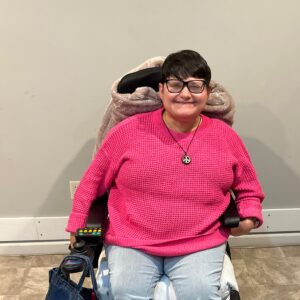Jesus does a good job at turning our perspectives upside down, doesn’t He? In the Beatitudes, found in Matthew 5, Jesus says we are blessed if we do things like be poor in spirit, mourn, be merciful, and the like. Throughout the telling of the Good News, Jesus continued to shake up conventional thought and behavior.
Jesus talked to women and physically touched people with leprosy, things religious people just did not do. He told his disciples to pray for our enemies and to trust Him like children. Jesus emphasized that loving God and loving others were woven together. He discussed how what went on in the hearts was more important than rituals.
What in the world? We don’t want to be vulnerable. Instead, we want to be strong, take what we want, and trust no one. We want to give preferences to some groups of people over others. We want clear directions, not to be reflective of our own motives. The prophet Isaiah even declared that God’s thoughts and ways are not our thoughts and ways. We can look at Jesus and understand how this is indeed so.
If Jesus’ earthly ministry messes with how we view God and people, then we shouldn’t be surprised that Easter calls us to examine what we know about Heaven and healing.
We have so many reasons to celebrate Easter. We celebrate the glorious fact that Jesus did what we could not. He conquered sin, the devil, and the grave. With this victory, we get to spend eternity with God! Heaven became a free gift and not of our works. The way Jesus accomplished our salvation was totally mind-bending and surprising.
Let’s take a look at how the Resurrection of Jesus puts a spin on how Heaven could look very different than what we believe.
A Different View of Heaven
The Book of John describes that the resurrected Jesus identified Himself to the disciples by showing His scarred hands and side. (Jesus did this twice since Thomas wasn’t present the first time.) What in the world? Jesus’ body wasn’t perfect?
In this tiny detail, Jesus flipped the script, and ideas about the afterlife got much more complicated and interesting.
As a person born with cerebral palsy, I have been told all my life that in Heaven, I would get a glorified body that would be perfect. In other words, my disability would be no more. The people who shared this with me meant to encourage me and make me happy, but this picture of Heaven never did. Understanding that I would be with Jesus forever is what excites me, not the promise of walking.
Contrary to popular belief, many of us Christians with disabilities don’t long to be healed. We see value in the different ways our disabilities allow us to interact with God, the world, and ourselves.
What Jesus experienced on the cross had extreme value for the entire world. The pain of that experience didn’t follow Jesus in His resurrected body, but His experience was still acknowledged through His markings. Maybe Heaven will be like this for some others. The pain from my disabilities won’t carry over, but that doesn’t mean an erasure of my disabilities. My disabilities could still remain with me, given they had great value in shaping me.
Notice I said this could be the experience of some of us, not all of us. I believe without a doubt that some people will not experience their disabilities when they meet Jesus face to face. For these people, their disabilities brought them nothing but sorrow and agony. I know people who long for release from their disabilities. Jesus is a good God. Revelation says there will no longer be sorrow in Heaven. So the releasing of any sign of disability will happen for these people.
My point is we don’t all need to experience the New Earth in exactly the same way. After all, followers of Jesus experience this Earth differently from one another. Why do we think Heaven has to be this one way for all of those who enter it?
When Jesus identified Himself through His markings, it gave my co-authors and me permission to wonder and think outside of the box. In our book, Disabling Leadership: A Practical Theology for the Broken Body of Christ, Andrea Mae, Andrew Draper, and I explored questions pertaining to the Resurrection, Heaven, and healing. We each drew closer to Jesus as a result.
It is my prayer that this Easter, we will praise God for challenging our views on Heaven and healing. May it affect how we treat the disabled people who are in our lives.
About Jody Michele

Jody Michele is a co-author of Disabling Leadership: A Practical Theology for the Broken Body of Christ. She is a locally licensed minister at Urban Light Community Church and an independent consultant on issues related to disability. Jody has served on numerous boards, including the Indiana Governor’s Council for People with Disabilities and the Muncie Human Rights Commission. She leads a support group for people with disabilities as part of her ministry calling. Jody believes her cerebral palsy gives her unique perspectives on God, the Bible, and humanity. Jody also identifies as neurodiverse. She is a resident of Muncie, IN.





